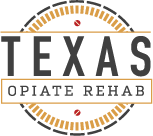For many people, opiate addiction begins with innocently taking a prescribed opiate medication to treat pain after an injury or surgery. In some rare cases, doctors may prescribe them for chronic pain. No one starts taking prescription opiates with the intention of getting hooked on them. Unfortunately, the pain relief, anxiety reduction, and euphoria provided by opiates can be highly appealing. These feelings can make a person want to recreate that feeling often. They may start by taking the medication a little more frequently than prescribed, eventually taking more pills with each dose to amplify the effects. Before they realize it, they have developed an opiate addiction and are looking for ways to obtain more pills than their doctor will prescribe. Without the help of an opiate addiction treatment program in San Marcos, TX, the dangers of opiates will only increase.
Side Effects of Opiate Use
Just because you receive a prescription for an opiate medication from your doctor does not mean it is entirely safe. Most medications come with side effects, from the antibiotics you take for a bacterial infection to the anti-depressants you take to manage major depressive disorders. Even over-the-counter medicines for the common cold come with side effects. When you purchase medication, you will notice pamphlets or warnings on the box about the potential side effects of using the drug. The chances are that you may not even think twice about these or even read the material.
While addiction is the top danger of using opiates, there is a wide array of side effects that come with opiate use:
- Constipation
- Insomnia
- Nausea and vomiting
- Loss of appetite
- Inability to concentrate
- Skin rash
- Drowsiness or disorientation
These side effects can be uncomfortable but may not be severe enough to deter you from continuing to use opiates. However, there is a risk of having an allergic reaction to opiates, which can be life-threatening. You may notice wheezing, itching, and hives, along with breathing difficulties caused by swelling of the throat, lips, and tongue.
What Are the Dangers of Opiates?
When someone uses opioids as a doctor prescribed, prescription opiates can be safe to use for short-term pain relief. However, the longer you use the medication, the more likely you can develop dependence. Furthermore, if you take more than prescribed, you can set yourself up for some serious risks. Some of the dangers associated with opiates include:
- Developing an addiction that can spiral downward into other areas of your life such as work, family, and relationships
- Experiencing withdrawal symptoms when you try to quit
- Decreased reaction times which put you at a higher risk of injury or accidents when operating vehicles or heavy machinery
- Developing a high tolerance which could lead to taking doses high enough to induce an overdose
- Potential for fatality if you take the medication with other depressants like alcohol or benzodiazepines
While the symptoms of opiate withdrawal can be uncomfortable, the effects of leaving opiate addiction untreated are even worse. Addiction detox programs are the answer to your struggle with opiate dependence.
Detox Center Programs Can Help Forge Your Path to Opiate Recovery
While opiate withdrawal is generally not dangerous, the symptoms can be extremely uncomfortable. The most significant risk when going through withdrawal from opiates is relapse. Detox center programs will provide medical supervision and medication to help you get through the discomfort. However, further treatment is needed to achieve lasting recovery. Detox can help purge the drug from your system comfortably, giving you a higher chance for long-term recovery. Reach out to your local addiction treatment center in San Marcos to find out what programs they offer for opiate use disorder.







